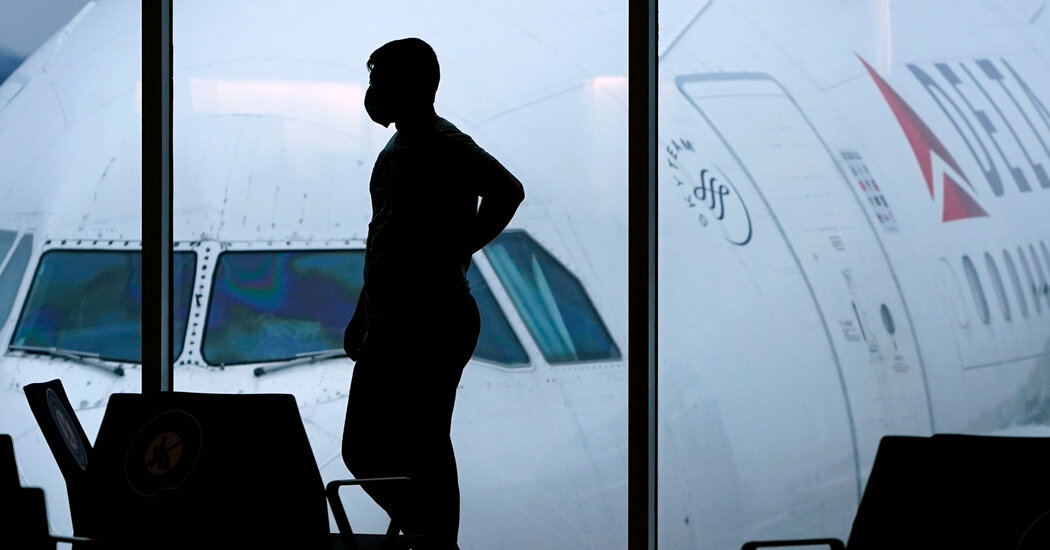As new coronavirus variants gain traction across the United States, summer travelers are facing a familiar and tiresome question: How will the ever-mutating virus affect travel plans?
In light of updated guidelines from the Centers for Disease Control and Prevention, the answers may be slightly different from those in previous years.
Here’s what to know about traveling this summer if you’re worried about — or think you might have — Covid-19.
What’s going on with Covid?
Recent C.D.C. data show that Covid infections are rising or most likely rising in more than 40 states. Hospitalization rates and deaths, while low compared with the peaks seen in previous years, are also on the rise.
The uptick is tied to a handful of variants — named KP.2, KP.3 and LB.1 — that now account for a majority of new cases.
At the same time, record numbers of people are expected to travel over July 4 and the holiday weekend.
I’d planned to travel, but I’m sick with Covid. What should I do?
In short: You should probably delay or cancel your trip.
If you tested positive or are experiencing Covid symptoms, which include fever, chills, fatigue, a cough, a runny nose, body aches and a headache, the C.D.C. recommends that you stay home and keep away from others.
According to its latest guidelines, the agency advises waiting until at least 24 hours after you are fever-free and your overall symptoms are improving before going back to normal activities, including travel.
What are the isolation rules?
New C.D.C. guidelines issued in March made significant changes to the recommended isolation period for people with Covid.
The agency now says that you can resume daily activities if you meet two requirements: You have been fever-free for at least 24 hours (without the use of fever-reducing medications) and your symptoms are improving overall. Previously, the agency recommended isolating for at least five days, plus a period of post-isolation precautions.
Even after your isolation period, you may still be able to spread the virus to others, which is why the C.D.C. encourages you to continue to take precautions for the next five days: Use masks, wash your hands frequently, practice physical distancing, clean your air by opening windows or purifying it, and continue testing yourself before gathering around others.
Are there any lingering testing or vaccine requirements?
Travelers no longer need to show proof of being vaccinated against Covid or take a Covid test to enter the U.S. (This…
Click Here to Read the Full Original Article at NYT > Travel…
